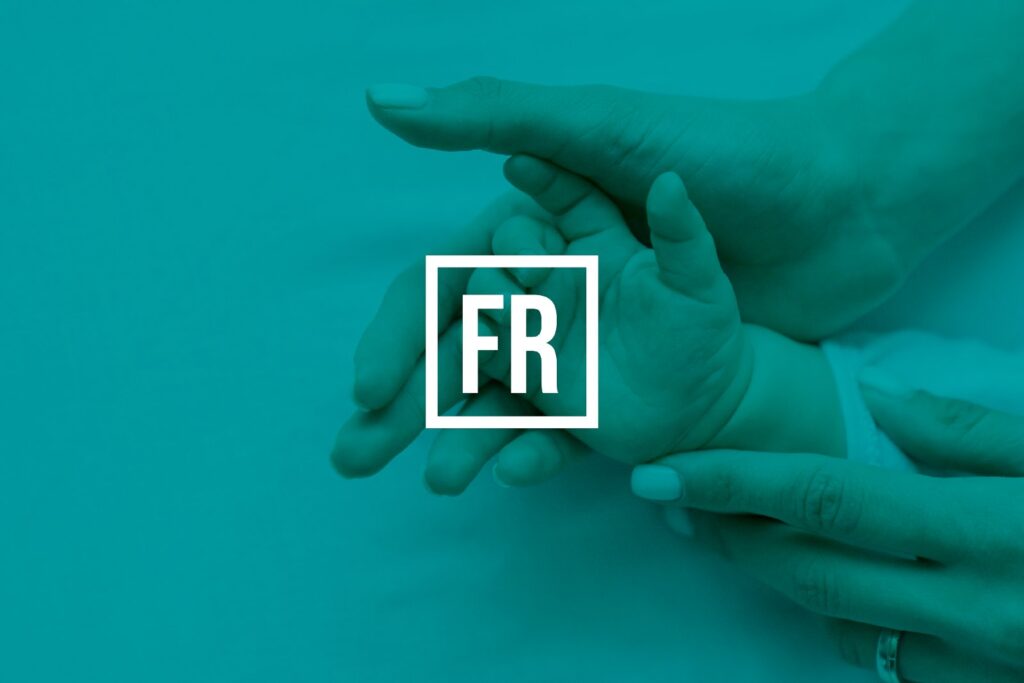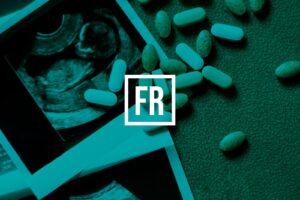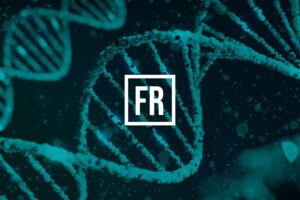It’s becoming increasingly common for women in their mid to late 30s and 40s to find that they have not met a suitable partner that they would consider having a baby with and feel they are getting to an age biologically where they might miss out on motherhood due to this circumstance. I know this because this was my exact situation and I now offer coaching to hundreds of women in the same position. These women don’t necessarily have any medical fertility issues (although often they are not aware if they will experience medical infertility as they haven’t got to this stage of even trying yet) but rather are falling into a category that is being termed ‘social infertility’.
Love the term or hate it, it is being used to describe the situation where you are unable to conceive naturally due to not having a partner and every year, we see more and more women finding themselves falling into this category.
For some in this situation the decision to try to become a solo parent using a sperm donor is an easy one as it provides the opportunity to try to ensure they don’t miss out on motherhood altogether. For others it takes a great deal of careful consideration. Many women spend several years deciding whether this is the right path for them. Personally, it took me nearly 3 years from it being a potential option, to fully deciding and starting treatment.
So why does it take so long to decide to take the donor route to solo parenthood?
Often there are a few different factors at play when deciding whether to pursue solo motherhood using donor conception, many of them emotional considerations.
The first is overcoming feelings of failure and shame that many admit to feeling about the fact they have not met a suitable partner to try to conceive naturally with. It can feel like everyone around you has managed to find a partner and they are all starting to have children together and for whatever reason, you just have not managed to be in the same position. Many women have shared with me that they have started to question what is wrong with them, particularly when it feels to them like everyone else, they know has achieved the goal of meeting a partner. You can start feeling left behind from your friendship group who all seem to be getting married and having children.
The second aspect is letting go of the fairy-tale of how you thought you would become a parent. We grew up surrounded by stories of meeting ‘Prince Charming’ and living happily ever after together. What we grew up being told, turns into our life script. By that I mean, the path in which we presume our life will take. Anything else will be deemed a failure. Any deviation from this script can challenge us.
Although most of us are realistic enough to know that our lives might not play out exactly in this way, we often don’t realise how deeply embedded some of those stories we have grown up with have become. The fairy-tale, the Rom Coms, the chick lit, the way the media portrays single, childless women, the list goes on. This can sometimes be so deeply embedded into our psyche that we don’t question it.
We start off by presuming we will follow the ‘traditional route’ of meeting a partner, getting married, buying a house and having children together, maybe one boy, then one girl, maybe getting a dog. When it becomes apparent this might not be going to happen for us, at least not in this order, we start wondering if we might miss out on motherhood altogether. Everything else can happen in its own time. We could meet someone in our 50s, or 60s or beyond. But there is a timescale for having children. So that’s what causes us to feel pressure.
Not wanting to consider the possibility of not becoming a parent, it’s at this point that people often start exploring the solo parenting route using donor sperm and sometimes depending on the circumstances also donor eggs. Often, there is a lot of emotional work to do, to start letting go of the way you originally presumed you would become a parent and to start working to embrace an alternative journey to parenthood.
This can be something that doesn’t come easily. For years and years, basically throughout our entire life to date, we might have made an assumption of how our journey to parenthood would play out. We have been led to believe that there is one path that is the most desired path and that any other paths will not allow us to be as happy. So, if we need to choose a different path, there can be an automatic assumption that it won’t be as desirable.
We have bought into the ‘Bridget Jones’ character, where single people are represented as unhappy and flawed. It can be for these reasons that for many in this situation, it can be easy to assume that happily ever after is no longer possible if you haven’t met a partner in time to have a baby with them. The only way to achieve happiness is to somehow manage to achieve your original life plan.
I help coach people on this topic and help them to let go of how they thought they would become a parent and embrace an alternative version. Different, but equally positive. If you have a deeply embedded belief of how you thought it would happen for you, it can take quite some work letting go of that idea and rewriting of that script, but it is totally possible.
It can be common to rewrite the script but at first struggle to see how it could possibly be as positive as the original plan. It takes a lot of work to look for the positives. You will find what you look for so if you keep looking for the things that are worse about your situation, you will be sure to find them. The tip in this instance is to look for the amazing elements about your own situation and how you can make that as good as it could be.
Will others judge you?
Another one of the emotional elements relating to this decision to use a sperm donor to become a solo parent is the worry about the judgement of what others will think of your decision. It’s common to worry that others might not agree with our decision or look down on us for making it. Maybe they think we are being selfish. Maybe they think it will be detrimental to our child’s emotional wellbeing. This can often be linked with our own judgements, our own insecurities and doubts.
The good news is that many women report that they built up a big fear of sharing their story with others and in actual fact when they did share that they have used a donor to conceive the vast majority of the reactions have been overwhelmingly positive. This in turn allows us to feel more positive about our decision to use donor conception.
There can be a huge concern about the impact to your child of not growing up with a father in their life. Making the decision to use a sperm donor to conceive as a solo parent means that your child will not know their biological father (unless a known donor is used) There may be an opportunity to connect with them at a later date, but this is not guaranteed and would only be possible from age 18 onwards.
In this circumstance, not only will they be donor conceived, but they will also not grow up with a father figure in their life. This is where role models can be hugely important. There may not be a father, but having plenty of inspiring role models can help to ensure they don’t feel they are missing out.
Another thing I recommend to people in this situation is to read Susan Golombok’s book, ‘We Are Family’, to fully understand the research that has been done in this area. Professor Golombok is a researcher who visits lesbian mothers, gay fathers, single parents, solo parents, donor conception parents, surrogates, and donors and more importantly, their children, to find out if they are as well adjusted, happy and emotionally stable as children from nuclear families. And she discovers the answer is yes – and sometimes even more so.
Also, what is really powerful is listening to donor conceived peoples’ voices. Series 5 of the Stork and I podcast features donor conceived people who were raised by solo parents, so we can hear from their lived experience and learn from it.
Accessing emotional support
When embarking on a journey of solo motherhood, a support network can become absolutely critical. You might not have a partner by your side to walk the journey with you, but by no means does this mean that you have to do it alone.
Will you feel lonely as a solo parent?
Many people worry that they will feel lonely, but this doesn’t have to be the case at all. It is possible to build an incredible support network and surround yourself by amazing people who are all there for you and supporting you on your journey in a variety of different ways.
Some people are lucky that they already have a support network in place, maybe your own parents, siblings or friends, but others worry that they don’t have a big network of people who would either be willing or able to help. This is something that you can absolutely create. Many of my closest friends are from since my daughter was born. It’s amazing how quickly you can build a friendship, especially if you’re in similar situations and really ‘get’ what each other is going through.
For this reason, one amazing source of support can be the solo parent community. Nothing beats connecting with people in similar circumstances who really ‘get it’ This can either be online or in person. The good thing about emotional support is that it can be either in person or remote: on a facebook group, a WhatsApp group or a Zoom call. This means that emotional support can be sought from global resources.
That is the exact reason why I created The Stork and I. To enable women in this situation to connect with each other, form part of each other’s support networks and ensure that no-one going through this feels alone.
If you are single and feel like you might miss out on motherhood if you wait for a suitable partner there are plenty of ways that you can connect with others in the same situation as you and get support and advice. Thriving Solo is a Solo Mum Membership Group that includes access to monthly live events on relevant solo mother topics as well as a monthly connection call for all members to attend as well as many useful downloadable resources.
The Stork and I Mum Tribe is a global Facebook Group that is set up to connect solo mums and those considering solo parenthood using donor conception. The group includes access to WhatsApp groups connecting people who live nearby to each other. Single Mothers By Choice UK, is a similar group exclusively for those living in the UK.
If you embark on a solo parent journey using donor conception, you will have a mandatory counselling session if you are using a UK clinic with a qualified counsellor. You can opt for additional sessions if there is more you need to talk through with a BICA qualified counsellor.
It can sometimes feel like we are alone on this journey. Whilst everyone around us is meeting a partner, getting married and conceiving naturally, we can feel stuck and out of options. I can reassure you as someone who has been there, travelled the journey, and now has an amazing 4-year-old daughter conceived using donor sperm, that this doesn’t have to be the ‘second best’ option. This was the perfect choice for me, and it could be for you too.
Mel is running Choosing Solo, her group Coaching Course for those considering solo motherhood on 22nd August 2022. Please check her website for details www.thestorkandi.com






